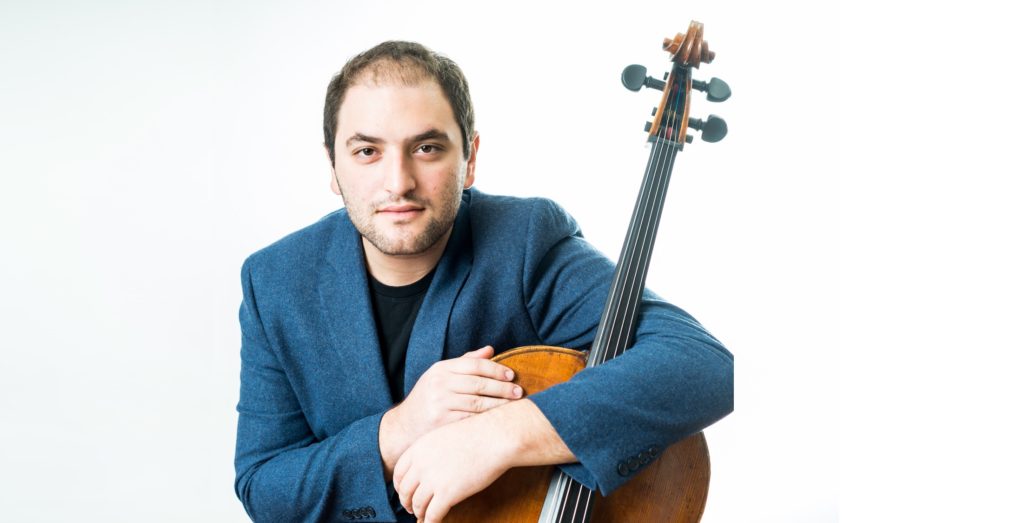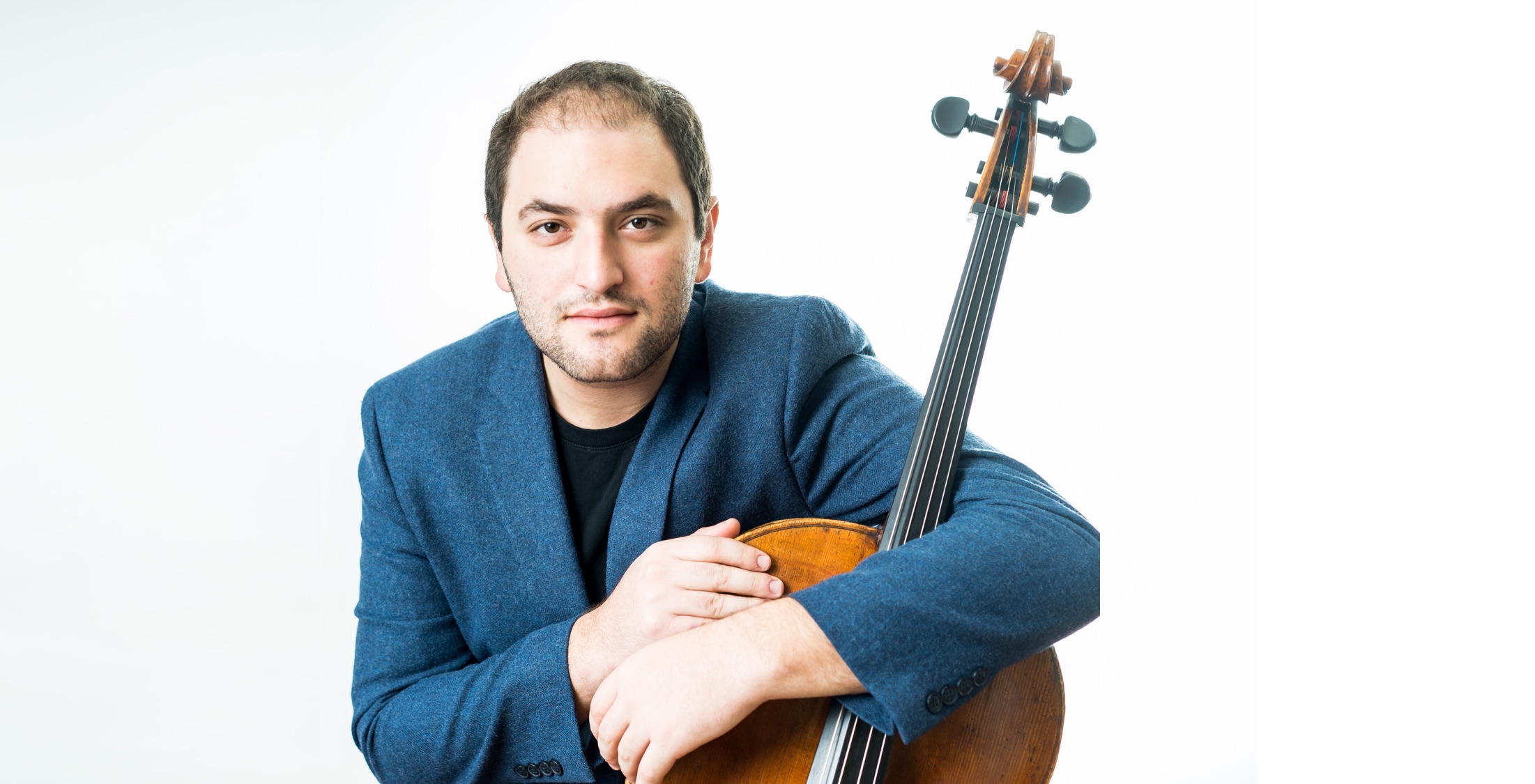
(Julian Schwarz, Cello)
By Montague Gammon III
From icy climes of dancing flakes and rime, to Roman Bethlehem and Golgotha, the Virginia Symphony closes out 2018 with a pair of concerts that feature some of classical music’s best loved Holiday and winter themed compositions.
VSO Music Director JoAnn Falletta took a break from rehearsing for a concert she would conduct in Calgary, Ontario, which was sandwiched on her schedule between two concerts in Hawaii, to talk about those “Winter Dreams” and “Messiah” performances.
Three Russian pieces, a 10-minute opener by Glazunov and two by Tchaikovsky, which bracket a symphony by Finland’s Sibelius, make up “Winter Dreams.”
What Falletta calls the “very kinetic music” of the Winter scene, from Alexander Glazunov’s 1899 Seasons, was originally one quarter of a ballet score. (Anna Pavlova danced the role of Frost in the 1900 premiere of Les Saisons, choreographed by Marius Petipa.) This “glistening portrait of winter,” possessed of an “elegant structure” and marked by “energy and physicality,” with its impression of whirling snowflakes, graceful skaters and “the sun shining on the ice,” gives a more benign version of Russian winter, she agrees, than what we hear of its reality: “Alluring and charming when you are not in the middle of it!”
Glazunov’s piece precedes the Rococo Variations for Cello and Orchestra, by Pyotr Ilyich Tchaikovsky, featuring internationally touring Shenandoah Conservatory Assistant Professor of Cello Julian Schwarz, himself the scion of a musical family. His father is the multi-Emmy winning conductor Gerard Schwarz, his grandfather was the longtime NY Philharmonic principal violist Sol Greitzer. (As a student conductor Falletta once had the “big thrill” of leading the Juilliard Orchestra when Greitzer was a visiting artist.)
The 20 minute dialogue between orchestra and soloist that makes up the Tchaikovsky Variations “really is like chamber music,” Falletta says. “Tchaikovsky made certain that the cello is the all important character,” in this “virtuoso piece,“ giving the instrumentalist “all these acrobatics [and] fantastic feats of technical brilliance.”
She’s worked with Julian Schwarz in Buffalo and Omaha, and says she is “really excited” to have him here as well, terming him “an extraordinary cellist.”
In Falletta’s estimation, Jean Sibelius’ Symphony No. 5 in E-flat major, Op. 82, is, very simply, “one of his masterpieces…one of the greatest pieces he ever wrote… a most magnificent work…in all of his works a singularly wonderful work.”
“I really love the Sibelius,” she says.
The composer’s diary records his thoughts as he worked out three versions of the symphony, culminating in the 1919 version that endures, with its horn call inspired by a flight of sixteen swans, circling over his head and calling, as if they were speaking to him: “The autumn sun is shining. Nature in its farewell colours. My heart is singing …The Adagio of my fifth symphony? That I, poor fellow that I am, can have moments of such richness!!…This important task which strangely enchants me. As if God the Father had thrown down pieces of a mosaic from the floor of heaven and asked me to work out the pattern.” And then came the swans: “One of the great experiences of my life! God, how beautiful!”
A return to Tchaikovsky, that master of the lush and the lyrical, with an orchestral rendering of the brief Pas de Deux from The Nutcracker, that Christmas ballet tradition that has delighted generations of young and not so young viewers, wraps up the Winter Dreams concert. It’s a “kind of a nod to us opening the Holiday Season.”
Falletta last conducted the Symphony’s annual performance of Handel’s great 1741 “Messiah” oratorio five years ago, and as she gets to the mid-point of her last full season as VSO’s Music Director, she says “I really wanted to do it …I’m so glad to have a chance to return to it … because it’s the last time I will have a chance to do it with my chorus.”
The oratorio recounts the entire life of Christ, from Old Testament prophecies through his birth, his crucifixion and resurrection, and is of course best known for its glorious and triumphant “Hallelujah” chorus, but it has become a part of the Christmas Season that is as expected as Dickens’ Christmas Carol or The Nutcracker.
“What people believe and love and cherish does not change. Centuries later we still listen to this music “Messiah” “stands the test of time,” Falletta comments.
Virginia Symphony Orchestra
JoAnn Falletta Music Director
Winter Dreams
8:00 p.m., Nov. 30, Ferguson Center for the Arts, Newport News
2:30 p.m., Dec. 2, Sandler Center for the Performing Arts, Virginia Beach
Julian Schwarz, Cello
Glazunov : Winter from The Seasons, Op. 67
Tchaikovsky : Rococo Variations for Cello and Orchestra
Sibelius : Symphony No. 5
Tchaikovsky : Pas de Deux from The Nutcracker
Handel’s Messiah
8:00 p.m., Dec. 13, Regent University, Virginia Beach
8:00 p.m., Dec. 14, First Baptist Church, Newport News
8:00 p.m., Dec. 15, Harrison Opera House, Norfolk
Virginia Symphony Orchestra Chorus
Robert Shoup, chorusmaster
Amy Owens, soprano
Chrystal Williams, mezzo soprano
Gene Stenger, tenor
Kevin Deas, bass baritone
www.virginiasymphony.org
757-892-6366




